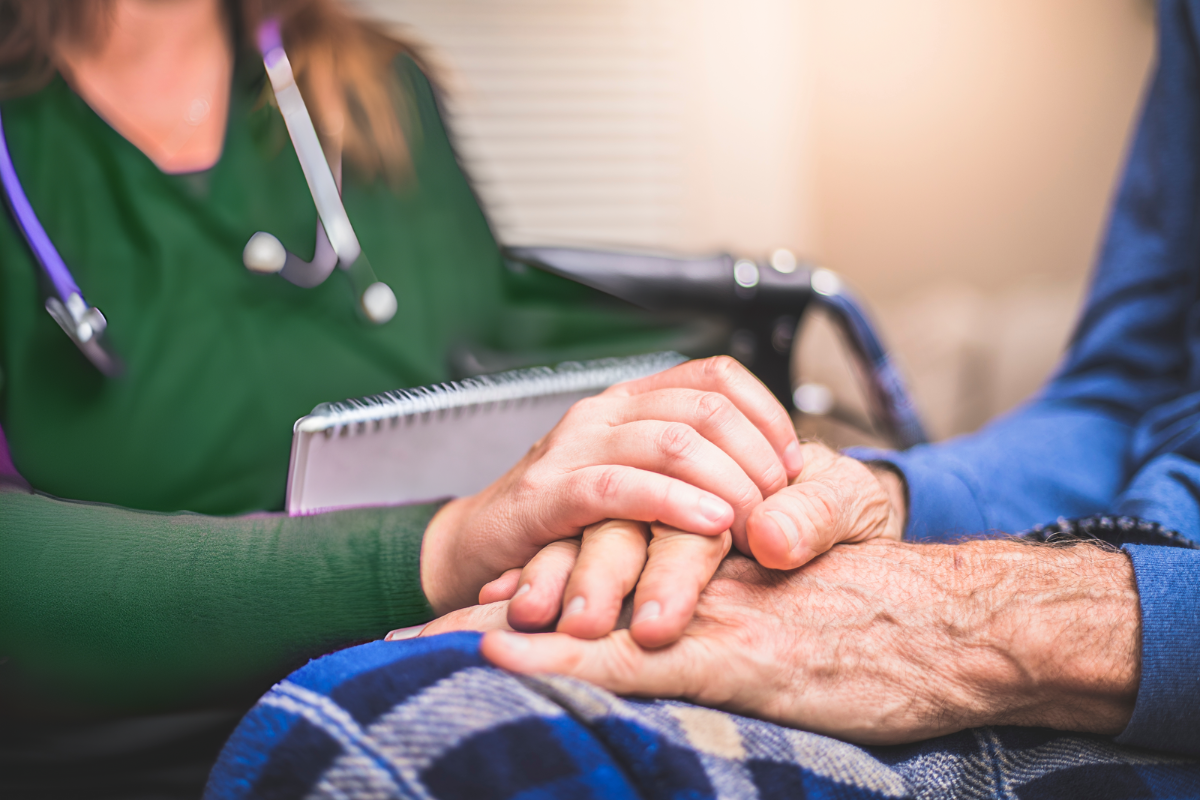Chronic Illness and Sexuality

When you have a serious illness, sexuality can be a complicated mix of worries, emotions, and physical considerations for both you and your partner, if you have one.
Your illness or treatment can affect your body as well as how you feel about yourself. It can make everyday activities – including sexual activities – feel overwhelming, challenging, or painful. However, if you and your partner are willing to be creative and maintain good communication, physical intimacy can still continue.
Challenges in Chronic Illness and Sexuality
When facing a serious illness, you may experience physical, emotional, and environmental challenges to your sexual activity.
Physical Challenges to Sexuality
When facing a serious illness, you may have symptoms that make sex difficult. Some symptoms include pain, fatigue, low sex drive, challenges with movement, and difficulty with bladder or bowel function. You may find that you wish to find ways to still have sex or you may want to explore other ways of being intimate including lying together or holding hands.
Mental or Emotional Challenges to Sexuality
In addition to physical changes, you may find that you no longer wish to have sex with your partner due to non-physical challenges. These challenges can include depression, anxiety, concerns about your appearance, changes in your relationship dynamics as they move into a caregiver role, and side effects from your illness or treatment.
Environmental Challenges to Sexuality
When you are receiving treatment for a serious illness, it may be difficult to find private time with your partner. This is especially true if you are being treated in a hospital or facility. You may be in a shared room or frequently interrupted with staff. Your bed may be too small for two adults to lay together comfortably. All of this can make it difficult to express your sexuality.

How to Address the Challenges
Good communication is the most important tool towards getting your needs met. Be honest with yourself and your partner about what your comfort level is and listen to how your partner is feeling. You may not want to have sex during this time. You may want to have more. Both responses are normal and can be supported.
Take your concerns to your healthcare team. Ask your doctor about how your serious illness or treatment will affect your sexuality. You may need to be the one to bring this up as your doctor will be primarily focused on your immediate care needs. If your doctor can’t address your questions, they should be able to put you in touch with someone who can.
If your concern is about changes to your appearance due to cancer, organizations like Look Good, Feel Better offer workshops on beauty and confidence to anyone undergoing cancer treatment. They have programs for both women and men.
If you are receiving hospice or palliative care, speak to your team about your feelings. Your social worker can help you find additional support and can help you find the words to address your concerns with your partner.
You should also talk to your partner about new ways to connect. This can mean something as small as new positions that are more comfortable for you or finding intimacy in other ways like massage, holding hands, or lying close together.

For Patients who Identify as LGBTQ
Everyone is entitled to high quality medical care regardless of their race, religion, gender or sexual orientation. If you worry about speaking about your sexual orientation or gender identity with your current healthcare team, GLMA: Health Professional Advancing LGBTQ Equality offers a provider directory where you can find doctors, specialists, therapists, dentists and other health professionals who welcome members of the LGBTQ community to their practice.
To learn more about the benefits of palliative care and how Crossroads Hospice & Palliative Care supports whole patient care, please call 1-888-564-3405.
If you found this information helpful, please share it with your network and community.
Copyright © 2020 Crossroads Hospice & Palliative Care. All rights reserved.




